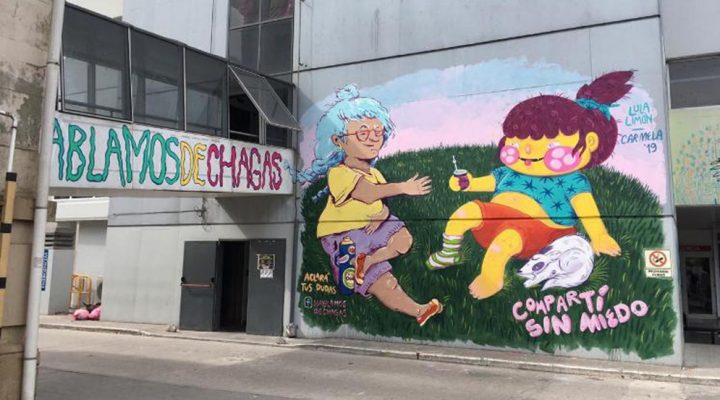BIOLOGICAL AND HEALTH SCIENCES
The World Chagas Disease Day was declared by the WHO
After a 7 years’ wait, April 14th was declared as a commemorative day. One CONICET researcher reflects upon the problem.
Although the commemoration of this disease was done unofficially in several parts of the world, the Word Chagas Disease Day was recently established by the World Health Organization (WHO): it will be every April 14th because on that day Brazilian doctor Carlos Chagas confirmed the presence of the parasite Trypanosoma cruzi in human blood samples, something that he had observed only in monkeys. It took place in 1909 and the patient was a two-year-old girl called Berenice who had temperature. The scientist had a previous achievement: he had discovered the microorganism in the inner part of the intestine of a bloodsucking insect called Triatoma infestans which stung people at night in the town where he conducted his studies.
“Due to historical antecedents, the search of a commemorative day was related to the idea of decentralizing the disease in order to focus on the people and communities who suffer from it,” says Mariana Sanmartino, CONICET researcher that belongs to the Science Teaching Group (GDC in Spanish) of the ‘Instituto de Física de Líquidos y Sistemas Biológicos‘ (IFLYSIB, CONICET-UNLP). For this reason, the researcher adds “from 2012 the International Federation of Associations of People Affected by Chagas disease (FINDECHAGAS) has asked the WHO to recognize the official World Day of People Affected by Chagas Disease. Finally, last year the assembly approved it but not the name, as it did not have the same criteria as the rest of the dates of the health calendar.”
The wait was so long that several organizations of patients or related groups began to organize activities and tributes every April 14th in order to gain visibility while awaited the official approval. Last year, in La Plata, the date was celebrated with a mural done by two local artists in the yard of the Hospital San Martín. The proposal was made by the group called What do we mean when we speak about Chagas?, which comprises scientists, academics and students of different institutions, and one of them is Sanmartino. “Chagas disease is more than a medical or biological matter: it is a problem that involves various epidemiological, political, social and cultural factors, but the general discourses are partial and do not question stigmatization and discrimination.” She also affirms that it is a scourge present in all parts of Argentina, although it has uncertain figures about its incidence in the population. Worldwide, it is estimated that this disease affects at least seven million people.
The achievement of the world commemoration led to several initiatives but the context of obligatory social isolation of several countries due to the advance of coronavirus forced people to change their plans. In Argentina, finally, the main activity will be a virtual talk organized by the group “What do we mean when we talk about Chagas?” and the National Program of Chagas of the Ministry of Health that will be on Tuesday 14 from 9 to 11. Sanmartino, however, highlights the activity stimulated by the WHO on the eve with the launch of a collaborative platform in which different actors linked to the subject managed to contribute to the current debates and to participate in the design of the official logo, the slogan, and the dissemination material that will be available.
